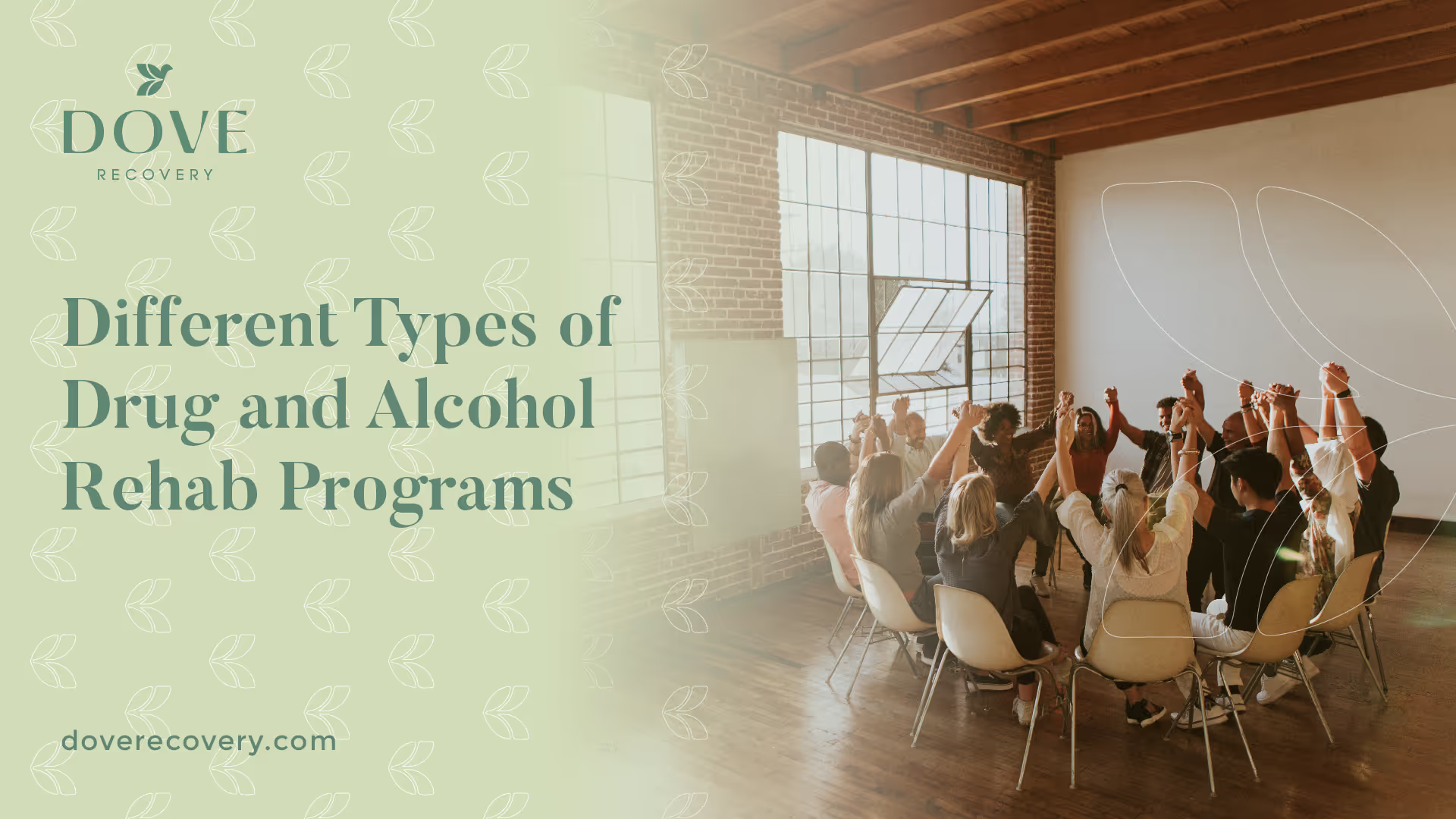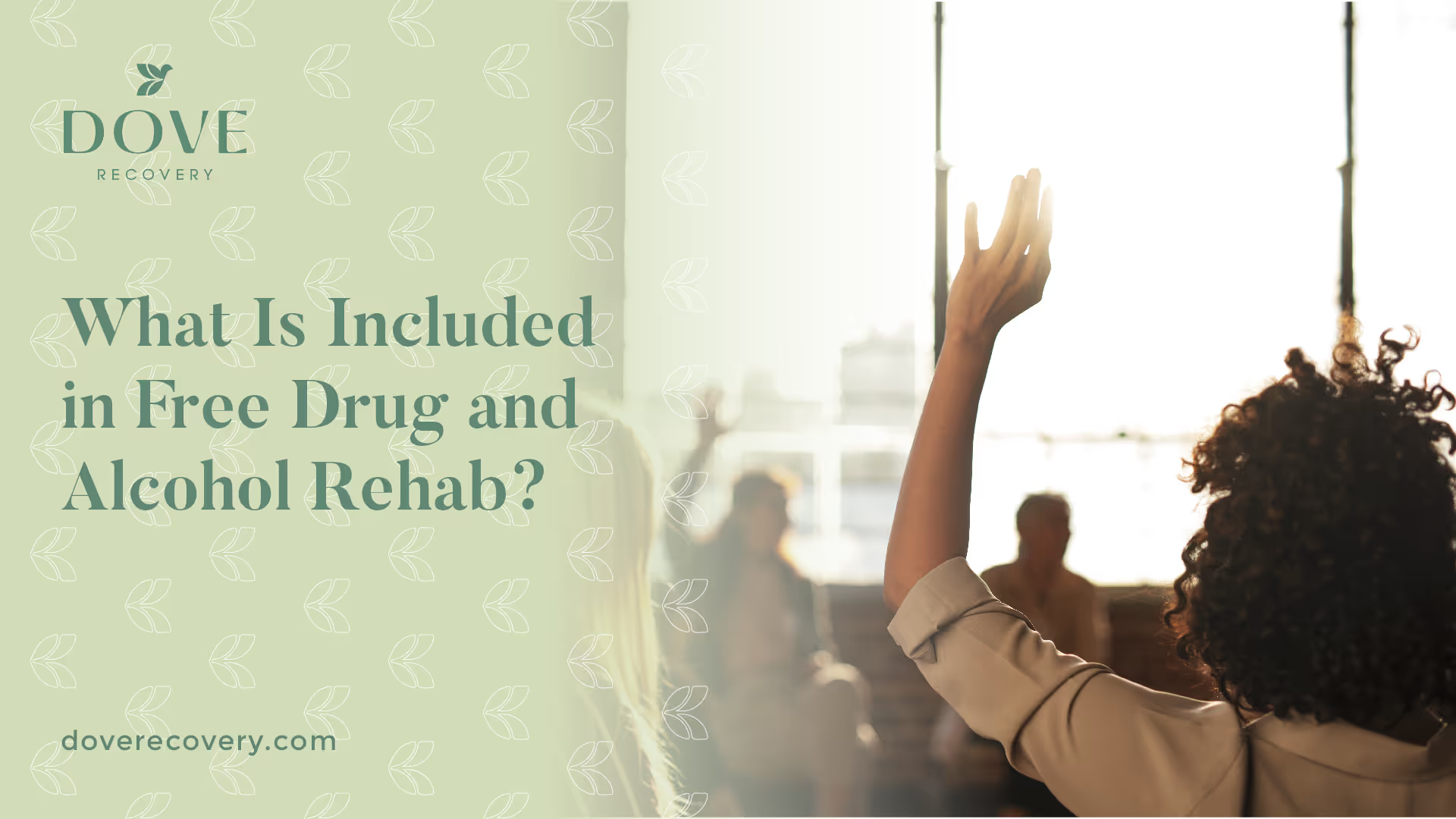Is Drug and Alcohol Rehab Free?

Are There Free Rehab Centers?
Drug and alcohol addiction is a serious problem that affects millions of people around the world. Fortunately, there are many treatment options available for those who are struggling with addiction.
One of the most common questions that people have when seeking treatment is whether or not drug and alcohol rehab is free. In this article, we'll explore the different options available for addiction treatment and discuss the cost of rehab.
Drug and alcohol rehabilitation programs come in many different forms, and their costs can vary widely. While some programs are offered completely free of charge, others can cost thousands of dollars per month.
The cost of a rehab program will depend on several factors, including the type of program, the length of stay, and the location of the facility.
Different Types of Drug and Alcohol Rehab Programs

There are various types of drug and alcohol rehab programs available, each with its own unique approach to treatment. Some common types of programs include:
Inpatient Rehab
Inpatient rehab is a residential treatment program that provides 24/7 care for patients who require intensive treatment. Patients live at the facility while receiving therapy, counseling, and medical care.
Outpatient Rehab
Outpatient rehab allows patients to receive treatment while still living at home. This type of program is ideal for those who have already completed an inpatient program or for those with less severe addictions.
Holistic Rehab
Holistic rehab programs focus on treating the whole person, including their physical, emotional, and spiritual well-being. These programs often incorporate alternative therapies such as yoga, meditation, and acupuncture in addition to traditional therapies.
Dual Diagnosis Rehab
Dual diagnosis rehab programs are designed for individuals who struggle with both addiction and a mental health disorder such as depression or anxiety. These programs provide integrated treatment that addresses both conditions simultaneously.
It's important to choose a program that fits your individual needs and circumstances. It's also important to consider the cost of each program when making your decision. While some programs may be more expensive than others, it's important to remember that investing in your recovery is an investment in your future.
For those seeking free drug and alcohol rehabilitation services, non-profit organizations are an excellent option. Many non-profit organizations offer addiction treatment services at little or no cost to the patient. These organizations may be funded by donations, grants, or government funding.
Free Drug and Alcohol Rehabilitations Programs in Ohio
Ohio is home to several free drug and alcohol rehabilitation programs that provide addiction treatment services to those who cannot afford the high cost of private rehabilitation facilities. These programs offer a range of services, including residential treatment, outpatient care, and aftercare support.
Here are some examples of free drug and alcohol rehabilitation programs in Ohio:
The Ridge
Located in Cincinnati, this program offers a 28-day residential program for men and women struggling with substance abuse. They provide individual counseling, group therapy, and medication-assisted treatment.
Glenbeigh Outpatient Center
With multiple locations in Ohio, Glenbeigh offers outpatient care for individuals struggling with addiction. They provide individual counseling, group therapy, and family education.
Maryhaven
This non-profit organization operates several addiction treatment facilities in Ohio, offering a range of services including detoxification, residential treatment, outpatient care, and aftercare support. Their programs are tailored to meet the individual needs of each patient.
Cleveland Clinic Alcohol and Drug Recovery Center
This program provides outpatient care for individuals struggling with substance abuse. They offer group therapy, individual counseling, and medication-assisted treatment.
It's important to note that while these programs may be free or low-cost, they may have limited availability or long waiting lists. Patients should research each program thoroughly to ensure that it meets their needs and preferences.
Non-Profit Organizations in Ohio
In addition to free drug and alcohol rehabilitation programs, Ohio is also home to several non-profit organizations that offer addiction treatment services at little or no cost to the patient. These organizations may be funded by donations, grants, or government funding.
Here are some examples of non-profit organizations in Ohio that offer addiction treatment services:
Ohio Department of Mental Health and Addiction Services
This organization provides a directory of free or low-cost addiction treatment programs across the state. Their directory includes information on detoxification, residential treatment, outpatient care, and more.
Alcohol, Drug Addiction and Mental Health Services Board of Cuyahoga County
This organization offers free addiction treatment services through their Recovery Resources program. Their services include medication-assisted treatment, counseling, and aftercare support.
The LCADA Way
This non-profit organization operates several addiction treatment facilities in Ohio, offering a range of services including detoxification, residential treatment, outpatient care, and aftercare support. They also offer specialized programs for pregnant women and individuals with co-occurring disorders.
BrightView
This organization provides outpatient addiction treatment services in several locations throughout Ohio. Their services include medication-assisted treatment, counseling, and recovery coaching.
It's important to note that while these organizations may offer free or low-cost addiction treatment services, they may have limited availability or long waiting lists. Patients should research each organization thoroughly to ensure that their programs are reputable and effective.
What Is Included in Free Drug and Alcohol Rehab?

Free drug and alcohol rehabilitation programs can provide a range of services to help individuals overcome addiction. The specific services offered may vary depending on the program, but here are some examples of what may be included:
Individual and Group Counseling
Many free rehab programs offer one-on-one counseling sessions with a licensed therapist, as well as group therapy sessions where patients can connect with others who are also in recovery.
Medication-Assisted Treatment
Some free rehab programs may offer medication-assisted treatment (MAT) to help ease withdrawal symptoms and cravings. MAT involves the use of medications such as methadone or buprenorphine, which are prescribed by a doctor and taken under medical supervision.
Detoxification
Some free rehab programs offer detoxification services to help patients safely and comfortably withdraw from drugs or alcohol. This may involve the use of medications, monitoring by medical professionals, and support from trained staff.
Aftercare Support
Many free rehab programs offer aftercare support to help patients transition back into their daily lives after completing treatment. This may include ongoing counseling, support groups, and referrals to community resources.
Alternative Therapies
Some free rehab programs may offer complementary therapies such as yoga, mindfulness meditation, or art therapy. These therapies can help patients manage stress, improve their overall well-being, and develop new coping skills.
It's important to research each program thoroughly to understand what specific services are included and whether they align with your individual needs and preferences. Additionally, it's important to keep in mind that free rehab programs may have limited availability or long waiting lists. Patients should explore all their options for addiction treatment and seek professional guidance if needed.
Who Qualifies for Free Rehab Programs?

When considering free drug and alcohol rehabilitation programs, many people wonder who qualifies for these services. The eligibility criteria for free rehab centers can vary depending on the program, but here are some factors that may be taken into consideration:
Financial Resources
Many free rehab programs require that applicants have limited financial resources and cannot afford the high cost of private rehabilitation facilities. This may be determined through an income assessment or proof of financial need.
Insurance Coverage
Some free rehab programs may require that applicants have inadequate insurance coverage or no insurance at all, making it difficult to access addiction treatment services through traditional healthcare providers.
Demographic Characteristics
Some free rehab programs may prioritize certain demographic characteristics, such as pregnant women, veterans, or individuals from underserved communities. This may be in response to specific needs or challenges faced by these groups.
Medical Characteristics
Some free rehab programs may prioritize individuals with certain medical characteristics, such as co-occurring mental health disorders or chronic health conditions. This may ensure that patients receive the appropriate level of care for their individual needs.
It's important to research each program's eligibility requirements thoroughly before applying to ensure that you meet the necessary criteria. Additionally, it's important to keep in mind that free rehab programs may have limited availability or long waiting lists. Patients should explore all their options for addiction treatment and seek professional guidance if needed.
How to Find a Suitable Rehab Program
Finding the right rehab program can be overwhelming, especially when considering factors such as cost, location, and level of care. Here are some steps to help you find a suitable rehab program:
1. Research Different Types of Programs
There are many different types of drug and alcohol rehab programs available, each with its own unique approach to treatment. Researching the different types of programs can help you determine which one is best suited for your needs.
2. Consider Your Budget
The cost of drug and alcohol rehab programs can vary widely, from free non-profit services to luxury facilities that charge tens of thousands of dollars per month. Consider your budget when researching different programs and ensure that you choose one that you can afford.
3. Look for Accreditation
Accreditation by organizations such as the Joint Commission or the Commission on Accreditation of Rehabilitation Facilities (CARF) indicates that a rehab facility meets certain quality standards. Look for accreditation when researching different programs.
4. Check Reviews and Testimonials
Reviews and testimonials from current or former patients can provide valuable insights into the quality of care provided by a rehab facility. Look for reviews on independent websites or ask the facility directly for testimonials.
5. Consider Location
The location of a rehab facility can impact your ability to attend treatment sessions regularly and may also affect your overall experience in treatment. Consider whether you prefer a local or out-of-state facility.
By following these steps, you can find a suitable drug and alcohol rehab program that meets your needs and supports your recovery journey.
The Importance of Seeking Help for Addiction
Addiction is a serious disease that can have devastating consequences for individuals and their loved ones. It's important to seek help for addiction as soon as possible to prevent further harm.
Many people who struggle with addiction may be hesitant to seek help due to feelings of shame or embarrassment. However, it's important to remember that addiction is a disease and seeking treatment is a brave and necessary step towards recovery.
Addiction can have serious consequences for an individual's physical and mental health, relationships, finances, legal status, and overall well-being. Here are some examples of how addiction can impact different areas of an individual's life:
- Physical Health: Addiction can lead to a variety of physical health problems, such as liver disease, heart disease, respiratory problems, and infectious diseases. Substance abuse can also increase the risk of accidents and injuries.
- Mental Health: Addiction is often accompanied by mental health issues such as depression, anxiety, and post-traumatic stress disorder (PTSD). It can also lead to cognitive impairment, memory loss, and difficulty with decision-making and problem-solving.
- Relationships: Addiction can strain relationships with family members, friends, and romantic partners. It can lead to conflicts, trust issues, and communication breakdowns.
- Finances: The cost of addiction can be significant, with expenses related to drug or alcohol purchases, healthcare costs, legal fees, and lost income due to job loss or poor work performance.
- Legal Troubles: Addiction can lead to legal troubles such as arrests for drug possession or driving under the influence (DUI).
- Work or School Performance: Addiction can impact an individual's ability to function effectively at work or school, leading to poor job performance or academic struggles.
It's important for individuals struggling with addiction to seek help in order to prevent these negative consequences and improve their overall quality of life.
By seeking professional help for addiction, individuals can receive the support they need to overcome their struggles and build a fulfilling life in recovery. Treatment options may include therapy, medication-assisted treatment, support groups, and more.
If you or someone you know is struggling with addiction, don't hesitate to reach out for help. There are many resources available for those who are ready to start their journey towards recovery.
FAQs
Q: Is drug and alcohol rehab always expensive?
A: Not necessarily. While some rehab programs can be costly, there are also free or low-cost options available for those who cannot afford private facilities.
Q: What types of drug and alcohol rehab programs are available?
A: There are several types of rehab programs available, including outpatient programs, inpatient programs, luxury programs, and non-profit programs.
Q: Are non-profit drug and alcohol rehab programs effective?
A: Yes, many non-profit organizations offer high-quality addiction treatment services at little or no cost to the patient. Patients should research each program thoroughly to ensure that it meets their needs and preferences.
Q: How do I find a suitable drug and alcohol rehab program?
A: It's important to consider factors such as cost, location, level of care, accreditation, and reviews when researching different rehab programs. By following these steps, you can find a program that meets your needs and supports your recovery journey.
Q: Why is it important to seek help for addiction?
A: Addiction can have serious consequences for an individual's physical and mental health, relationships, finances, legal status, and overall well-being. Seeking professional help for addiction is a necessary step towards recovery and can improve an individual's quality of life.
Conclusion
Drug and alcohol addiction can have serious consequences for individuals and their loved ones. While drug and alcohol rehab programs can be expensive, there are also free or low-cost options available for those who cannot afford private facilities.
Government-funded programs and non-profit organizations offer a range of services to help individuals overcome addiction, including counseling, medication-assisted treatment, detoxification, aftercare support, and alternative therapies.
Patients should research each program thoroughly to ensure that it meets their needs and preferences. Seeking professional help for addiction is a necessary step towards recovery and can improve an individual's quality of life.
Sources:
- The Salvation Army - http://www.salvationarmyusa.org/usn/plugins/gdosCenterSearch?start=1&title=Drug%20and%20Alcohol%20Rehabilitation
- The Phoenix - http://thephoenix.org/
- The Betty Ford Center - https://www.hazeldenbettyford.org/
